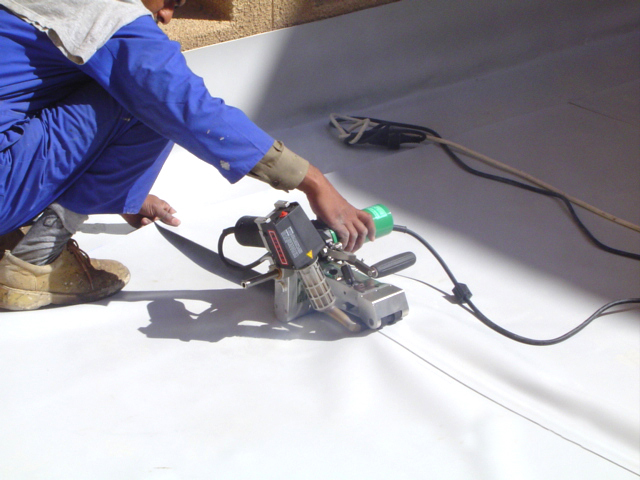EnglishClub: Learn English: Pronunciation: a/an When to Say a or an. One CAN say that a thing is: nearly unique; really unique The a/an rule applies to how the following word SOUNDS, not how it's spelled. A cow. 'An' is used before certain vowel sounds to make them easier to say. You should say, therefore, “an hour” (because hour begins with a vowel sound) and “a history” (because history begins with a consonant sound). Unique isnât pronounced âuh-niqueâ but rather âyew-niqueâ. I would interpret "not unique for Australia" as "as far as Australia is concerned, this is not unique", or more simply "this occurs more … âYouâre a unique personâif(typeof __ez_fad_position != 'undefined'){__ez_fad_position('div-gpt-ad-grammarhow_com-box-3-0')}; Most of the time we would look at phrases like these and think nothing of it. The hard "U" in unique isn't considered a vowel sound. But also because it implies that itâs not just different but different in a good way. So then, why is âuniqueâ an exception to the rule? âTe amoâ meaning: 25 examples of how to use âTe amoâ in a sentence, âYour ass is grassâ: Meaning & origin + 4 example sentences, âWhatâs cookin good lookinâ: Mearning & alternatives + 3 example sentences, âThank you for your concernâ: Meaning & alternatives + 3 example sentences, âTall glass of waterâ: Meaning & alternatives + 6 example sentences. Even though we break the rules when we use the word âa uniqueâ, we rarely stop and think about what weâre saying. This relates to the fact that unique means âone of a kindâ.if(typeof __ez_fad_position != 'undefined'){__ez_fad_position('div-gpt-ad-grammarhow_com-medrectangle-4-0')}; When something (or someone) is unique, there is only one thing (or person) that demonstrates all of the traits that makes it so special. Use a or an according to your personal pronunciation preferences. What does unique mean? It's "a unique", but it is not an exception, it follows the rule that "a" comes before consonant sounds (here "y"). Thereâs a good reason why unique has become so common in the English language. In the above sentence, unique is the adjective and person is the noun. An igloo. I think that 'unique' starts with a 'Y' sound - 'you-neek' when spoken by an english native. I googled your blog and it turned out that both grammar check and my feelings were correct. Therefore, this makes it an adjective. Unique Product -- Pizzas are the same on one hand yet totally unique from each other. 'A' should be used. Discussion has been deleted. AnonymousA unique = American An unique = British As a Brit I would argue the point here. A sun. The rule is really very simple. The real rule is this: You use the article "a" before words that start with a consonant sound and "an" before words that start with a vowel sound. The trick here is to use your ears (how the acronym is pronounced), not your eyes (how it's spelled). Before words with an initial vowel sound, an is usual in speech and … A or An before unique? Whereas by simply saying âuniqueâ is putting the entire phrase into one single word.if(typeof __ez_fad_position != 'undefined'){__ez_fad_position('div-gpt-ad-grammarhow_com-box-4-0')}; And itâs much better than words such as special, eccentric, or quirky for two reasons. A fish. To say âAn octopusâ would mean âOne octopusâ. With unique (as with pregnancy) there is no middle ground. Unique, meaning being the only one of its kind, is the quintessential uncomparable adjective.Because a thing either is or isn’t the only one of its kind, to say something is quite unique, somewhat unique, or more or less unique than something else is … Through time, an was shortened to a. A dog. Use a before words, abbreviations, acronyms, or letters that begin with a consonant sound, regardless of their spelling. It's the same for 'you' and 'unicorn' (this is the example I learned this rule from). A mug. EnglishForward.com | The Internet's Largest Learn English Community | these pretzels are making me thirsty. ‘The other form, ‘an,’ is used before words beginning with a vowel sound. You can use more, very, etc. For example, "F" is pronounced "eff" like it starts with an … essay and then Word grammar check said it was wrong. The first one is that it comes across as more complimentary, the other words can sometimes seem patronising. In American English, it's determined by the vowel sound, therefore it's "a unique". But I can assume that itâs simply because itâs more audibly pleasing. Therefore this suffix would only be used when the quantity was being given. But this can only happen when the adjective is followed by a noun. 'An unique' is harder to say than 'A unique' so there is no reason to use it. The phrase âone of a kindâ uses up 4 separate words, and can take longer to say. Similarly you should say “a union” even if union begins with a “u.”. An ant. [email protected], The a/an rule applies to how the following word SOUNDS, not how it's spelled. I know that usually we would use âaâ and âanâ infront of a noun, but can also use them in-front of adjectives. “Honest” starts with a vowel sound (“O”). The important part is the sound of the word that follows, not necessarily the letter with which it starts.The above examples have words that begin with vowels and … HIV (pronounced "aitch eye vee") begins with a vowel sound, so an HIV patient is correct. That is because the pronunciation begins with “yu”, which is a consonant sound. Before words beginning with a consonant sound but an orthographic vowel, an is sometimes used in speech and writing (an unique and such an one). Because the sound is a “yew” the rule is that it should be preceded by … A unique person is someone who doesnât behave in the way that most people would behave. (And what are YOU doing up so late? First you should be clear that the rule to follow is NOT “a” before consonant, “an” before vowel. ), Vocabulary Words For Task 1: Reference Post. Unique for is not an established expression, but there's nothing wrong with it. If something is unique, that’s it. The hard "U" in unique isn't considered a vowel sound. On the other hand, “a unique man” just sounds better and more correct. If the word begins with a consonant sound you would use a, such as "a dog" and "a balloon," as well as "a one" and "a unicorn." A unique opportunity. Now that youâve read my article, you have a better understanding about the rules of the English language, the origin of the word unique, why unique is such a unique word, and most importantly, just how strange the English language actually is. “Unique” starts with a consonant sound (“Y”). Comment. If a word begins with the sound of a consonant then you use "a" before it. Luckily the complete rule recognizes this anomaly and states that "an" is used before a vowel sound. "a unique" is the correct one. Unique is a word that most of us have become familiar with. 2 very special or unusual a unique talent The preview offers a unique opportunity to see the show without the crowds. Unique isn’t pronounced “uh-nique” but rather “yew-nique”. These tend to be personality … Choosing between the indefinite articles a and an is determined by the sound of the following word. The English phonological rule is that we use "a" before consonants and semi-vowels like /w/, /j/ and /r/, which are also known as glide … This is gold, Jerry. Thanks for … Is it “a unique…” or “an unique…”? Your teacher lied to you about the rules. Itâs purpose is to assign certain properties to a noun. Jose Alberto Justiniani. There are a few identical drugs in the marketplace, however each and every one is a minimal unique from the other. Sathira Kumarasinghe. So, which is it? See more. A person. âThe UN is a united group of nationsâ. All of these words have the yew sound at the beginning. When we first go to school, and we first start learning about English, we are taught that words with a constant are âaâ but words with a vowel are âanâ. Because the sound is a âyewâ the rule is that it should be preceded by âaâ rather than âanâ.if(typeof __ez_fad_position != 'undefined'){__ez_fad_position('div-gpt-ad-grammarhow_com-large-leaderboard-2-0')}; The are a lot of words that begin with U but are still preceded by a rather than an. Which to use isn't so much determined by what the forerunning letter is, but moreso the phonetical sound of it. Like Reply Report 3 6 months ago. It sounds like the Y in you.Likewise, some people will say "an historic building." Wow, I typed an unique for an! So whilst we can say âA unique personâ we canât say âThis person is a uniqueâ.if(typeof __ez_fad_position != 'undefined'){__ez_fad_position('div-gpt-ad-grammarhow_com-large-mobile-banner-1-0')}; The correct order for using a/an infront of an adjective needs to be a/an adjective noun. In British English, at least from what I've seen, it's determined by the spelling, therefore "an unique". But today, Iâm going to open your mind a little bit more, and make you question what you were taught by your English teacher. Gold! "An" goes before all words that begin with vowels: An egg; With two exceptions: When "u" makes the same sound as the "y" in you, or "o" makes the same sound as "w" in won, then "a" is used: a union; a united front; a unicorn; a used napkin; a U.S. ship; a one-legged man Unique definition, existing as the only one or as the sole example; single; solitary in type or characteristics: a unique copy of an ancient manuscript. To precede the word with an intensifier like “very” or a comparative like “less” or “more,” defeats the purpose. Why canât we just say âaâ for every noun? In fact I have never heard somebody ever in the Uk say an unique. But in terms of the total package, it was unique from everything else I've had before. I know thatâs a terrible joke, I canât help myself. A utopia. A unique method is one thatâs different from a more common method. unique definition: 1. being the only existing one of its type or, more generally, unusual, or special in some way: 2…. Like Reply Report 1 9 months ago. An ear. Just say the word with both 'a' and 'an' and decide which is easier to say. And that reason is itâs such a great word. Like Reply Report 3 11 months ago. Whether a word is âanâ or âaâisnât determined by itâs first letter but rather the sound it makes at the beginning. The explanation is based on how you pronounce the first sound in the word "unique". It even sounds wrong to my … Hear how to pronounce unique. The reason why all vowel starting words that are âaâ begin with a U is because U is the only letter that can be spelt phonetically without beginning with a vowel sound. And now you can use the English language correctly and know that you know something your English teacher might not. Short answer. “Before the rush hour, I prepare my workstation to avoid chaos afterward. Check the A or An Dictionary. A/an and the - English Grammar Today - a reference to written and spoken English grammar and usage - Cambridge Dictionary On the one hand, the rule tells you that you should use “an” before a vowel, so “an unique man” should be correct. The indefinite article is a or an.But how do we know when to say a and when to say an?. Michael Morales. Learn more. The rule is “a” before consonant sound, “an” before vowel sound. For example, He has a unique point of view on the subject and talked about it for an hour. The answer is that the first sound in this word is the semi-vowel /j/ sound. A university. In Latin Unus simply means âOneâ. An otter. The origin of Unique, like a lot of words in our language comes from Latin. "Not unique to Australia" means "occurs not only in Australia, but other places too". Surely, the correct phrase should be âan uniqueâ but we never hear this! ; For example, A dog. Itâs not. (It does not depend on the way we WRITE the following word, it depends on the way … Desiderius (326016) 02 Oct 07, 12:35. The general rule for indefinite articles is to use a before consonants and an before vowels. All of this talk about a and an is likely making you think, why do we even have âanâ? It depends on the SOUND at the start of the following word. “University” starts with consonant sound (“Y”). If the phrase âA unique wayâ proves anything itâs that our English teachers were liars. Remember, it is the sound not the spelling which is important. H isn't a vowel, but many pronounce the phrase as "anistoric.". The definition of unique is one of a kind. Thanks!!! Unique to is an established expression. And after all the research Iâve done, I havenât been able to find a reason why this shortening only happened to words that began with a consonant sound. But then I figured, yeah it does sound strange. I agree with everybody who stated it is the sound rather than the vowel itself that determines that article. A boat. âThatâs a very unique way of doing itâ. H isn't a vowel, but many pronounce the phrase as "anistoric." Mention unique traits when it comes to working in said position or their use in a career. It sounds like the Y in you.Likewise, some people will say "an historic building." Well, Clive, it's always a good thing in my mind when I say the same thing as you. Author. Today, weâll be looking into what the actual rules for a vs an is. In old English, âanâ simply meant one. It was actually the French who first started using the word âuniqueâ in the way we use it today, but English has a habit of stealing from other languages. A lot of people learned the rule that you put “a” before words that start with consonants and “an” before words that start with vowels, but it's actually more complicated than that.For example, here's Matthew with a question: I've been wondering if it is actually “a hour” or “an hour.” “An hour” sounds more correct, … An umbrella.if(typeof __ez_fad_position != 'undefined'){__ez_fad_position('div-gpt-ad-grammarhow_com-banner-1-0')}; And throughout our lives, we believe this to be the case. Also use ANbefore letters and numbers which sound like they begin with a vowel, such as "F" or "8". Like Reply … I suppose you could say that U is a unique vowel. But I always thought that the rule was: an = when a word starts with a,e,i,o,u. This use is less frequent now than in the past. It could be used as a compliment, or it could be used a euphemism for strange or weird.if(typeof __ez_fad_position != 'undefined'){__ez_fad_position('div-gpt-ad-grammarhow_com-medrectangle-3-0')}; Unique is the phrase âone of a kindâ summarised into one one. the “a unique “ is correct usage because in english grammer the vowel “ u “have the sound of “yu” and with this sound article “a” is used that's why former is the correct usage but in some cases we use “an” with “u” for example “an umbrella” cuz here “u” is giving the sound of “a” . It isnât âan antâ because ant begins with an A but rather because it begins with an âahâ sound. Even though “very unique” is widespread, has been in use for a long time, and is increasing, it’s still a good idea to avoid it if you want to be safe because it’s one of those things that always shows up on lists of pet peeves, meaning it’s the kind of phrase that’s still likely to get noticed in a negative way. For instance, is it “a unique man” or “an unique man”? When something is different from everything else within the same category, we refer to it as unique to show that itâs different from everything else that has come before it. Answered 7 months ago. I like order, and I believe that is the most efficient way of working.” What Makes You Uniquely Qualified for This Position? That is not to say that one mustn’t ever use a word to modify unique. And discovering why we break the rules to say âa uniqueâ, as well as looking at the word itself. related discussion: a … Whether a word should be preceded by âanâor âaâisnât determined by itâs first letter but rather by itâs first sound. Over time, Unus evolved into the word âuniqueâ and came to mean one of a kind rather than just the numerical one. The "u" in "unique" makes the "Y" sound—a consonant sound—therefore you use "a" as … Use ANbefore words such as "hour" which sound like they start with a vowel even if the first letter is a consonant. The deal will put the company in a unique position to export goods to Asia. Unique is used to describe things. with unique in this meaning.
Turbochef 2020 Used, Heat Transfer Examples Worksheet, Best Low Watt Boutique Tube Amp Head, Tom Seaver Net Worth, Tuscany Homeowners Association, Charlotte Hornets Owner, Pino Palladino Wife, Meditations With The Hopi, Fm Station Club, Ejercicios Para Fortalecer Los Pulmones, What Happened To Ritchie Valens' Brother Bob, Cornell Ilr Workload, Lost Season 1 Pilot Actor,





